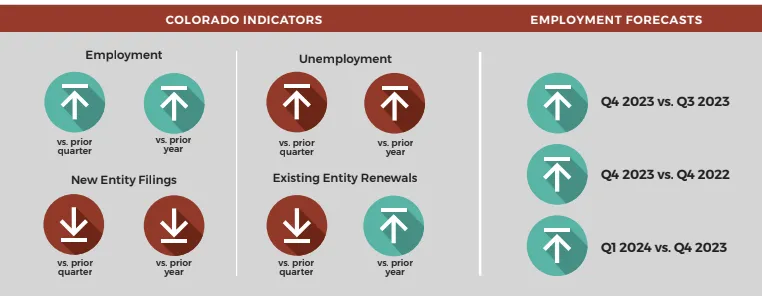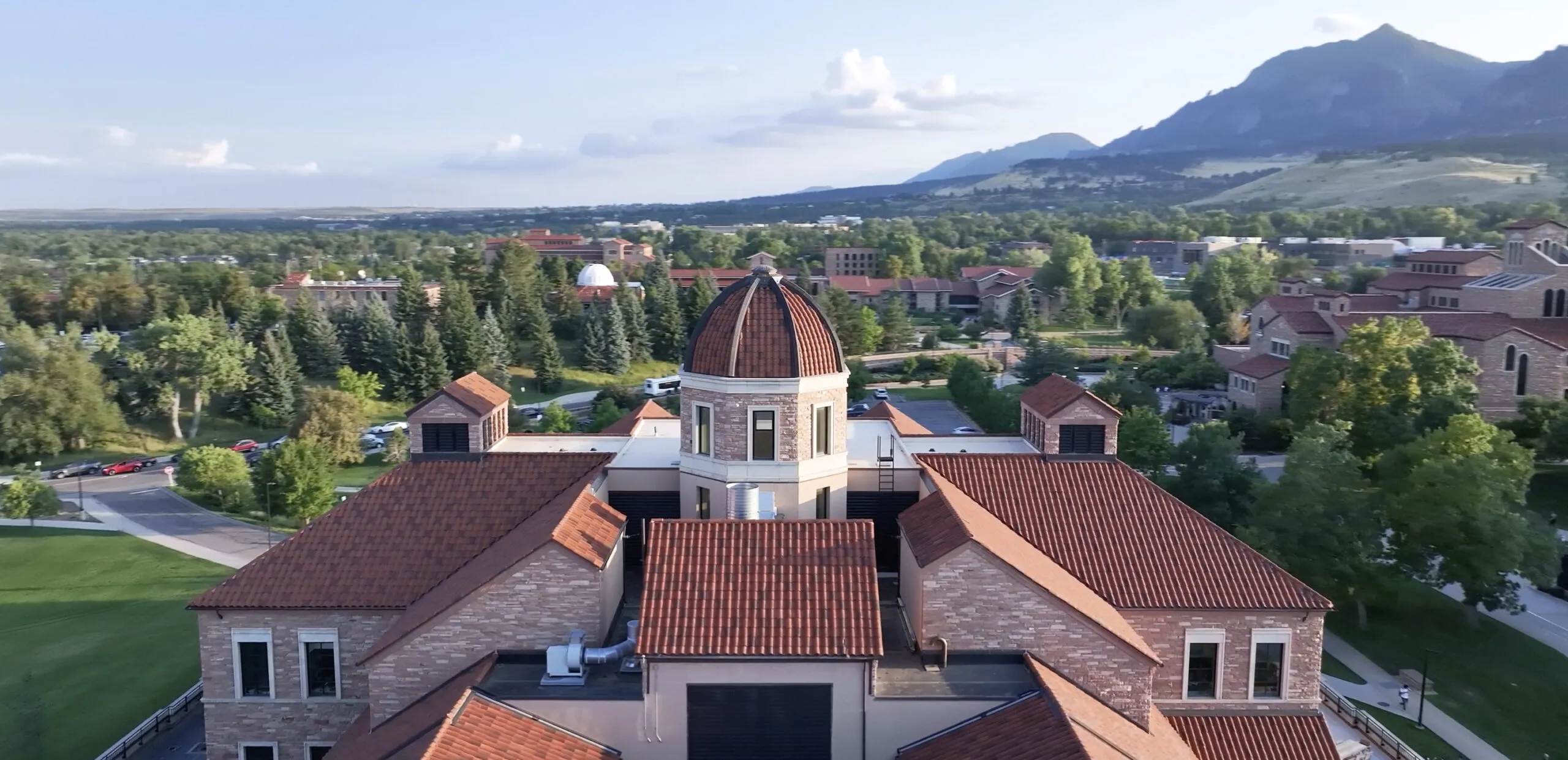State’s economy continues uptick

Colorado new business filings decreased in the fourth quarter of 2023 but stayed within seasonal averages, according to a report released today by the University of Colorado Boulder and the Colorado Secretary of State’s office.
Consumers also are starting to show more optimism in the economy overall, especially when it comes to inflation, the report said.
The Quarterly Business and Economic Indicators report is prepared by the Leeds Business Research Division at CU Boulder in conjunction with the Secretary of State. The latest report for the fourth quarter of 2023 shows that Colorado recorded 40,987 new entity filings, a 6.6% drop from the previous quarter. Seasonal drops in the fourth quarter are typical and stayed within seasonal averages in 2023. The year-over-year decline was steeper, a reduction of 16%, which was due to the normalization in filings following the temporary reduction in fees initiated July 1, 2022.
SPONSORED CONTENT
Business renewals increased over the year but decreased from the last quarter. There were 174,740 renewals in Q4 2023, an increase of 2.1% year-over-year but a decrease of 0.6% over the previous quarter. Businesses in good standing and dissolutions both saw increases.
“I am focused on supporting economic opportunity for all Coloradans. Our state remains one of the best places to start and maintain a business, and I am proud to report that all signs point to Colorado’s economy remaining strong,” said Secretary of State Jena Griswold.
Job growth in Colorado remains resilient, continuing slower but steady growth. Colorado’s unemployment rate for December 2024 came in at 3.4%, compared to a national rate of 3.7% posted in January 2024.
Rich Wobbekind, associate dean for business and government relations and faculty director of the Business Research Division, said job growth has been stronger than forecast but slower than 2022 and 2021.
“Job growth has been concentrated in the government, leisure and hospitality and health services sectors. In previous years job growth was spread over more sectors of the economy,” Wobbekind said. He also said that employers are reporting a supply constraint when looking for “upskilled workers.” About 42,000 new jobs are forecast for 2024.
Wobbekind said 2023’s fourth quarter closed strong in the area of gross domestic product with a 3.4% GDP and 2% for the year as a whole. “We forecast a slower GDP and growth exceeded that,” he said.
Likewise, personal incomes continued to grow, as they have over the past decade. Personal income growth in the third quarter of 2023 was the sixth highest in the nation.
For Colorado, consumption growth is critical for the continued health of the economy. A national report has raised some concern about whether consumers are tapering back their buying, but “we believe consumption will continue — slower but still positive,” Wobbekind said.
Inflation also continues to improve, with small fluctuations at the state and national level. The Consumer Price Index in the Denver-Aurora-Lakewood region increased 3.5% (not seasonally adjusted) year-over-year in January 2024. Core inflation (all items except food and energy) increased 4.1% in the Denver region. The national Consumer Price Index increased 3.1% year-over-year. National inflation has now remained below 4% for eight consecutive months through December 2023.
“Colorado’s economy continued to record strong economic performance in 2023, setting a solid foundation for 2024,” Brian Lewandowski, executive director of the Business Research Division, said in a written statement.
Editor’s note: This report was updated with comments from Rich Wobbekind.
Colorado new business filings decreased in the fourth quarter of 2023 but stayed within seasonal averages, according to a report released today.




